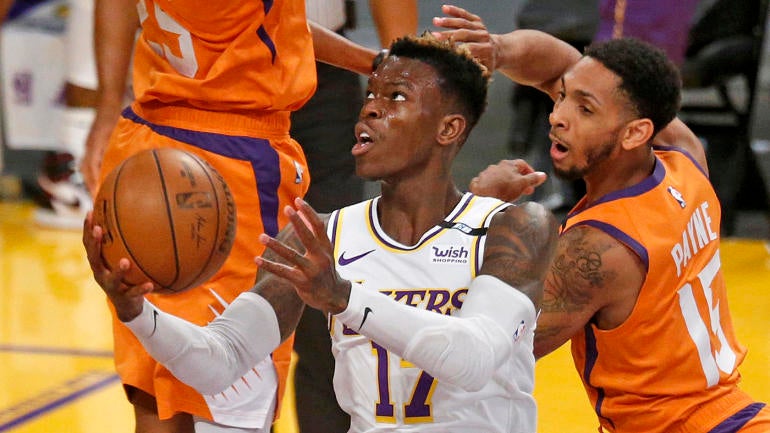

Dennis Schroder is, in all likelihood, wealthier than anyone reading this story. He just finished a four-year contract he signed with the Atlanta Hawks that paid him roughly $70 million, and even if he hadn’t, the one-year, $6 million deal he signed with the Boston Celtics is more than most of us will earn in our lifetimes. Yet as free agency progressed and his options dwindled, basketball fans mercilessly mocked him for a decision that cost him significantly more money.
During the season, the Los Angeles Lakers reportedly offered Schroder a four-year contract extension worth up to $84 million, the most they could legally pay him. Schroder rejected that offer hoping that a strong playoff run on a championship contender could help make him even more on the open market. The move backfired. Schroder was held scoreless in Game 5 of the first round against the Phoenix Suns, a series the Lakers eventually lost. He ultimately couldn’t find a suitable long-term deal, so he had to take the taxpayer mid-level exception from the Boston Celtics.
On Wednesday, Schroder finally acknowledged that decision in a self-deprecating Instagram post. “I’m gonna do this ONE time!” Schroder wrote in the caption of a picture of him with two of his expensive cars. “Insert your best “fumbled the bag” joke here.”
Schroder posted the picture on his birthday, which might explain his positive attitude about the subject. Not all players can be so self-deprecating. Nerlens Noel, who similarly turned down a $72 million deal from Dallas only to settle for multiple minimum-salary contracts several years ago, is currently suing former agent Rich Paul for those lost wages.
The situation ultimately goes to show how circumstantial contract negotiations can be. Schroder is not a materially different player today than he was when that contract was offered. He hasn’t suffered a major injury. But at the time, he was leading a team with championship upside. That team was capped out, and without knowing that Russell Westbrook would one day become available, likely assumed that re-signing him with Bird Rights was their only way of securing a point guard of his caliber. That led to his enormous offer, but once the Lakers were out of the picture, the other point guard-needy teams had moved on to other targets. He had no choice but to sign a one-year deal and try again next offseason. At that point, he’ll likely settle somewhere between $6 million and $84 million, but that still won’t change who he is as a player. All three options were viable at different points because that’s what the market dictated.

